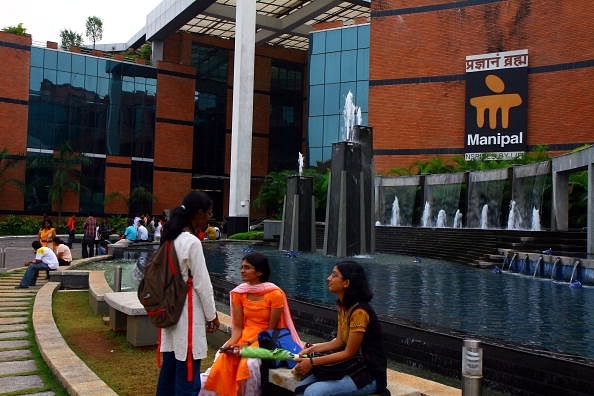Insta
No More Engineering Colleges: Panel Recommends Non-Proliferation From 2020, As Seats Turn Difficult To Fill

Students at the Manipal Engineering and Medical Group campus in Bengaluru. (Photo by Deepak G Pawar/The India Today Group/Getty Images)
In light of a large proportion of seats remaining vacant in engineering colleges each year, a government committee with IIT- Hyderabad chairman B V R Mohan Reddy at its helm has submitted a 41-page report to the All India Council for Technical Education (AICTE) suggesting that the latter halt the creation of new engineering colleges from 2020 and also not approve any additional seats in traditional engineering disciplines, reports The Indian Express.
Every year, more than half of all engineering seats remain vacant, with traditional branches such as electronics, civil, mechanical and electrical just being able to fill around 40 per cent of seats. Capacity utilisation is much better in newer branches like computer science, aerospace engineering, among others.
The expert panel has also recommended that beyond 2020, the AICTE review the creation of fresh capacity every two years.
The report also advises the AICTE to concentrate on creating exclusive undergraduate engineering programmes specifically in emerging fields such as blockchain, artificial intelligence, data sciences, etc.
Although the panel has unequivocally made the recommendation that no new colleges should be set up post-2020, it has considered the special case of applications which are already in the pipeline, stating that concessions could be made in such instances.
“While we take such a serious decision, we also recognize that there could be some applications in the pipeline for additional/new capacity applied for in the last one or two years. These may be pending for want of some minor clearances. So, applications for starting institutions, made in the current year and the past two years, may be considered if the infrastructure is already in place,” says the report.
Introducing ElectionsHQ + 50 Ground Reports Project
The 2024 elections might seem easy to guess, but there are some important questions that shouldn't be missed.
Do freebies still sway voters? Do people prioritise infrastructure when voting? How will Punjab vote?
The answers to these questions provide great insights into where we, as a country, are headed in the years to come.
Swarajya is starting a project with an aim to do 50 solid ground stories and a smart commentary service on WhatsApp, a one-of-a-kind. We'd love your support during this election season.
Click below to contribute.
Latest